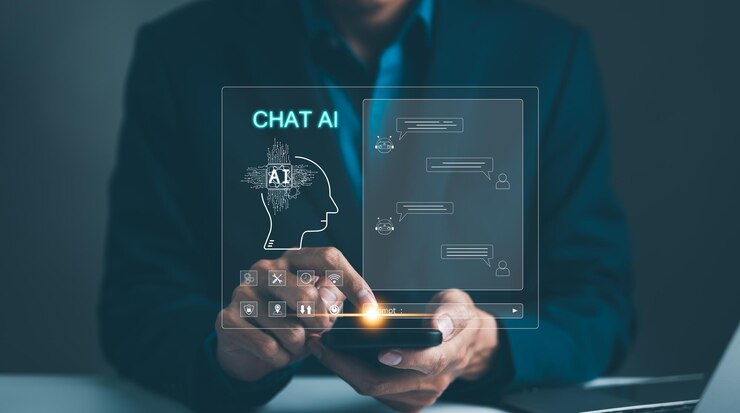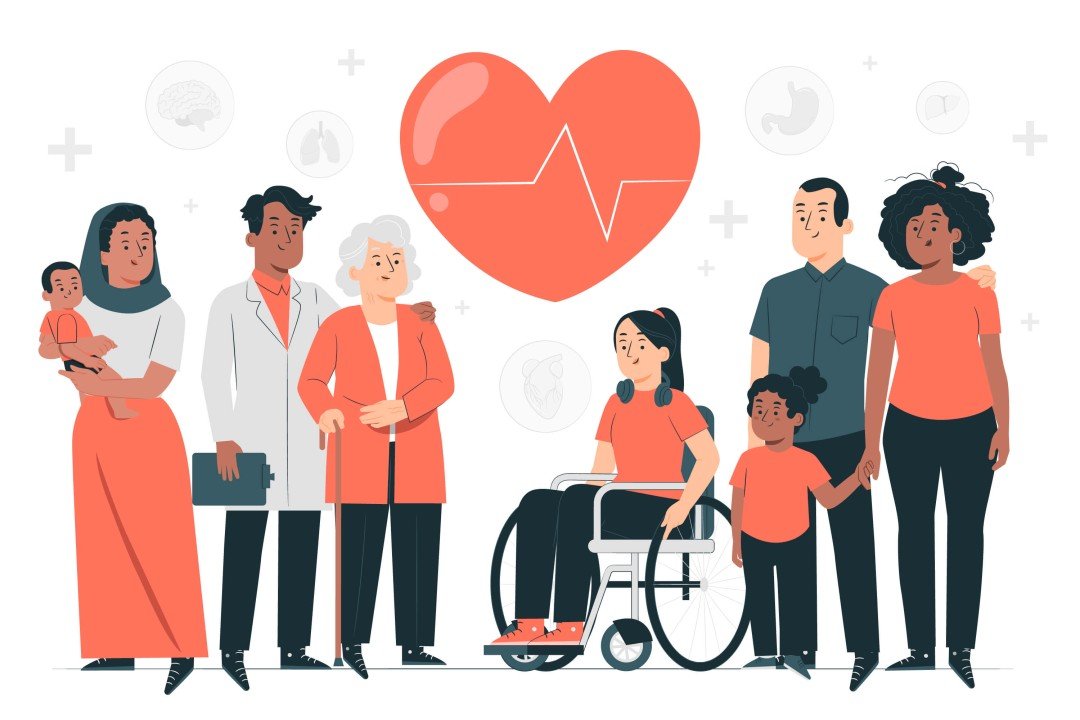In the digital era, where communication and information play a pivotal role, AI stands as a crucial tool in enhancing our ability to communicate and respond. A prime example of this is the AI answer generator, a product of this approach. These generators, designed to understand and respond to human language, are reshaping our language interactions, from customer service chats to educational lessons, from writing to casual conversation. In this article, we delve into the concept of an AI answer generator, its features, advantages, disadvantages, and potential future developments.
What is meant by AI Answer Generator?
An AI answer generator is an application designed through machine learning and Natural Language Processing that processes a user’s input or idea and formulates an appropriate and relevant response. This technology is rooted under the umbrella term conversational AI, which encompasses virtual companions, chatbots, and any AI that involves interactivity. Answer generators are now common in practically every virtual assistant, customer support chatbot, and search engine to help users locate information more proficiently and efficiently.
How does an AI Answer Generator Work?

Deep at the heart of an AI answer generator is a sophisticated system of algorithms, more specifically, machine learning and deep learning algorithms. These algorithms are built using large datasets and can learn language patterns, syntactical structures, and semantics of questions. Here’s a closer look at how it works:
- Data Collection and Preprocessing: The system needs a lot of data for testing or training to use AI answer generators. Such datasets are texts obtained from websites, articles, forums, and other sources. The preprocessing steps involve cleaning and organizing the data for further use as input to the model.
- Natural Language Processing (NLP): NLP is an Artificial Intelligence application that lets machines understand the language of humans. Regarding language processing, AI answer generators automatically assess the Text input and group questions and then parse all the critical information to generate an appropriate reply.
- Deep Learning and Neural Networks: Most answer generators employ deep learning, a neural network that emulates the human brain processing system. A few of them include GPT (Generative Pre-trained Transformer), which enables any AI answer generator to come up with correct grammatical answers and ones that make sense.
- Context Understanding: The latter is superior to previous answer generators, which just look for the response in a list; the current ones also use context from previous exchanges or the surrounding text. This makes it possible for the AI to give successive information that will be relevant to the user’s overall situation.
- Response Generation: After the model has understood what the user said and thoroughly processed it, the AI responds. Depending on the sophistication of a given system and the type of training offered, this answer can be as straightforward as that or as complex as an explanation.
Real-Life Use of AI Answer Generators
AI answer generators have proved helpful in different fields, as shown here. Here’s how different sectors are leveraging this technology:
1. Customer Service and Support
Many organizations have adopted the technology, with the chief use being in the customer service department, where it can offer quick answers to frequently asked questions and solve general problems. This helps companies meet more clients’ needs than possible when dealing with live agents. Common applications include:
- Chatbots on Internet sites that can respond to customer’s questions concerning goods, services, or policies.
- Interactive agents that help the users to perform a series of activities or solve problems. Message centers that provide callers with constant and standard answers or transfer them to the appropriate section. Assistants that guide users through processes or troubleshoot common issues.
- Automated phone systems that answer frequent questions or direct callers to the correct department.
2. Education and E-Learning
AI answer generators transform education by acting as virtual tutors, helping students with homework, or clarifying complex concepts. E-learning platforms are integrating these tools to provide personalized assistance, where an AI can:
- Answer questions related to specific topics.
- Provide explanations and examples to help students understand better.
- Suggest additional resources based on the student’s progress and comprehension.
3. Content Creation and SEO
Content creators and SEO professionals benefit greatly from AI answer generators, which can assist with creativity, research, and writing. These tools can help:
- Generate relevant content ideas by answering common questions in the niche.
- Create drafts or outlines, saving time for writers.
- Provide keyword insights by analyzing frequently asked questions online, helping to create SEO-optimized content.
4. Healthcare
In the healthcare industry, AI answer generators are increasingly used to provide patients with basic information about symptoms, medications, or procedures. These systems are not substitutes for doctors but can provide initial support and guidance, especially in areas such as:
- Telehealth, where AI-driven chatbots answer general health questions.
- Patient portals, where AI can provide information on medications, procedures, and health conditions.
- Mental health apps that use AI to offer emotional support and resources.
5. Personal Productivity and Assistance
AI answer generators have now interceded into productivity tools that assist individuals in sorting information and tasks.
- Virtual personal assistants such as Siri, Google Assistant, and Alexa provide answers to questions concerning schedules, reminders, or any questions that may be asked or troubleshoot common issues.
- Automated phone systems that answer frequent questions or direct callers to the correct department.
- Writing tools like Grammarly and QuillBot, which suggest edits, rewrites, or provide definitions.
- Note-taking applications that use AI to summarize content or answer follow-up questions based on notes.
Benefits of AI Answer Generators

AI answer generators offer a multitude of benefits, making them a powerful tool for individuals and businesses alike. These benefits include:
- Efficiency and Speed: Users found that AI answer generators can respond in less than a second, increasing the efficiency of work and the possibility of obtaining information.
- 24/7 Availability: Unlike human agents who are off duty or on leave, the service or information is not available.
- Consistency in Responses: AI Answer generators provide standard answers to queries so that the customer receives correct information each time and not just the last time they ask.
- Cost-Effectiveness: The AI answer generators work with many questions, which minimizes the need for staff and human resources and hence saves costs in the long run.
- Scalability: AI systems’ self-contained feature means that the volume of queries can grow without increasing the costs; therefore, it’s appropriate for companies that want to extend their customer service capacity.
Challenges Facing AI Answer Generators
While AI answer generators offer numerous benefits, they come with their own set of challenges:
1. Accuracy and Reliability
However, one of the most significant drawbacks of AI answer generators is maintaining accuracy. Even though it is not necessarily always a problem that the answers provided are wrong or irrelevant, it can lead to user annoyance or, in some cases, risk in cases of dependence on the application domain, such as a healthcare one. It also shows that AI models must be trained constantly and that the more specialized a field, the less reliable the system will be.
2. Emotional Intelligence Shortage
AI cannot feel empathy or the social aspect of the overall scenario, which may make things very difficult for those searching for answers to emotional or social intelligence. Although the development of emotional AI is progressing, the actual concept of emotional intelligence is still a significant challenge.
3. Privacy and Security Concerns
This is an issue of privacy, which is always a problem with AI answer generators, as these programs need access to the user data to generate an adequate answer. This information should be in the right hands, especially in delicate areas of practice like health and other financial practices.
4. Dependency on Training Data
Any AI model depends on the data set used to train the model. In the same case, if the data set from which the AI answer generator develops its responses is biased or contains limited information, it will have biased responses. Despite having the advantage of developing responses to a wide range of inputs, the converse is often true for the weaknesses: the limits in training data sometimes produce ethnologically prejudiced answers.
The Future of AI Answer Generators

AI answer generators are predicted to be even more developed and incorporated into our lives. Here are some anticipated advancements:
1. Enhanced Language Comprehension
Recently, with the development of NLP, AI answer generators are likely to better understand context, slang, and colloquialisms, making them more suitable for everyday use. This could lead to AI that has a closer human touch in the responses that will be returned.
2. Multi Linguistic and Cross Language Flexibility
It is probable that in the future, AI systems will be able to automatically provide answers in any chosen language since language processing technologies are currently progressing. This is because, with this expansion, their Availability will increase to the extent that users worldwide can use the technology in the language they understand best.
3. Emotional Intelligence Integration
Subsequent versions of answer-generating AI may include dimensions of emotional intelligence to enable the machines to sense the user’s emotions and adapt the response to the current tone. This may have the potential to make interactions with AI feel more comforting, where AI is used for customer support or mental health assistance.
4. Domain-Specific Expertise
Answer generators may also become domain-specific due to the increasing tendency of companies and developers to build particular AI systems in fields such as medicine, law, or engineering.
5. Ethical AI Development
As consumers develop more consciousness about the ethical utilization of artificial intelligence in the future, models shall incorporate privacy, bias, and transparency. Ethical frameworks will probably dictate the future advancement of AI to guarantee the security of individuals’ rights for any answer generators.
Conclusion
Artificial intelligence answer generators are changing how people get and use information. They are creating a new way of interacting with people and acquiring knowledge, from fast customer support to educational assistants. Of course, some issues must be addressed, but the potential for these tools as they develop, become more refined, and read human emotions is virtually infinite. As AI answer generators are being introduced into different fields, they are expected to help enhance access to information, enabling more effective communication and providing quicker solutions. In a world where time and information are scarce, the AI answer generator perfectly represents what artificial intelligence can do.
























